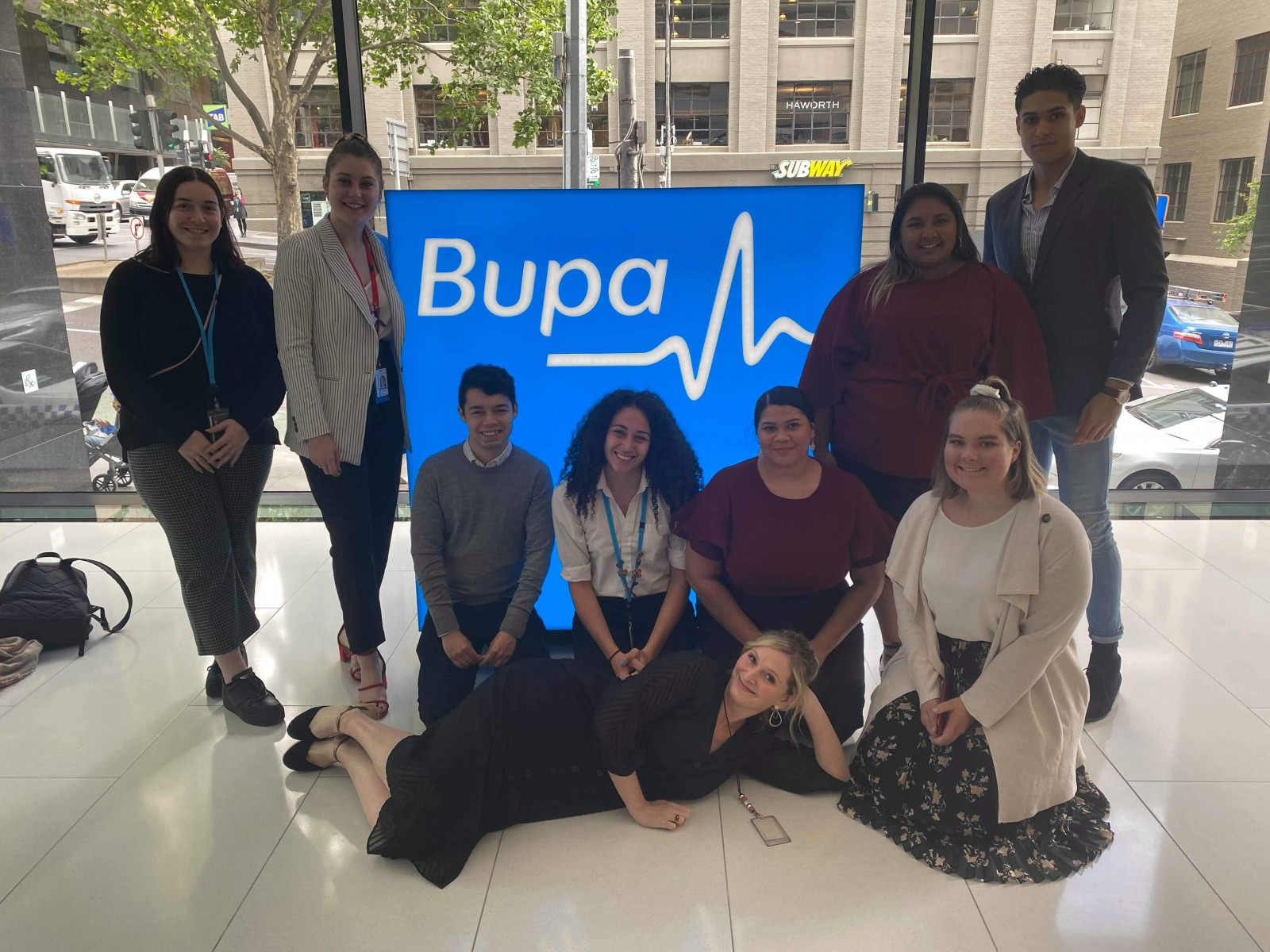Personal reflections on reconciliation
To reconcile is to submit to or accept something unpleasant, and to restore friendship and harmony.
By Olivia Bonanno, Bupa's Dr Evelyn Scott Scholarship recipient.
Reconciliation means many different things to many different people. For some it is about learning, and for others it is about passing on the stories of the past to future generations and move toward a brighter united future.
Aboriginal and Torres Strait Islander culture is something that non-Indigenous Australians should not shy away from celebrating, and Reconciliation Week allows us to take time to reflect on how we can continue to grow together all year round.
To me, reconciliation means that I can be proud of my identity, feel supported by my non-Indigenous peers, and advocate for better outcomes for Aboriginal and Torres Strait Islander people together. It means that I can be proud of my identity without fear of judgement or hostility from those around me. My personal journey of reconciliation has consisted of finding peace within myself and who I am as an Aboriginal person so I can be a better role model for my community and instigate change at a higher level.
I struggled with my Aboriginality for quite some time, as from a young age I was exposed to harmful narratives that questioned my heritage on the basis of my skin colour, my name, and my upbringing. As I have grown, so too have my peers. My non-Indigenous friends and family understand and respect how the lives and experiences of Aboriginal and Torres Strait Islander people differ from theirs, and do what they can to support community initiatives that benefit First Australians.
I believe that reconciliation is about the journey rather than the destination, and that this journey takes time. There is so much of Australia's real history that needs to be told; dispossession and displacement, warfare - massacres, stolen children, land rights, constitutional recognition and more recently Treaty. It is important that these stories are shared, and done so by Aboriginal and Torres Strait Islander people.
Although this is important all year round, Reconciliation Week gives all Australians the opportunity to reflect, acknowledge, understand, respect, and celebrate Australia's first peoples and their continuing contribution to Australia. It is important that non-Indigenous Australians acknowledge the damage of invasion and genocide on Aboriginal and Torres Strait Islander people, however, redressing the wrongs of the past and achieving reconciliation with words is not enough. It’s more than a word, and it takes action.
Here are some suggestions of things you can do, not just this Reconciliation Week but every week of the year, to support Aboriginal and Torres Strait Islander people and actively contribute to promoting reconciliation.
- Support Aboriginal and Torres Strait Islander businesses, artists, and initiatives. Find out more about the mob in your local area and attend local community events when you can. During Reconciliation Week and the upcoming NAIDOC Week there are often events held in local government areas to celebrate. You can also encourage your school, workplace, or sports club to get involved and show support.
- Listen and learn. Speak to Elders and read about the effects that the invasion that still impact Aboriginal and Torres Strait Islander people today. Be aware and informed of the systemic and institutional racism that affects First Nations’ peoples. Engage with Indigenous media such as NITV and Indigenous X and listen to Indigenous issues being discussed by Indigenous people.
- Don’t be a bystander, call it out poor behaviour when you see it. Whether it’s a mate making discriminatory comments or a family member making enforcing negative stereotypes, letting it slide is just as harmful as saying it.
- Volunteer or donate to Aboriginal and Torres Strait Islander organisations and initiatives, such as the following.
- The Healing Foundation - a national organisation that partners with communities to address the ongoing trauma caused by actions like the forced removal of children from their families.
- First People's Disability Network - a national organisation representing Aboriginal and Torres Strait Islander people with disability and their families.
- Lowitja Institute - a national institute for Aboriginal and Torres Strait Islander health research.
- Your local Aboriginal Community Controlled Health Organisation.
To find out more, start by checking out https://www.reconciliation.org.au/.

